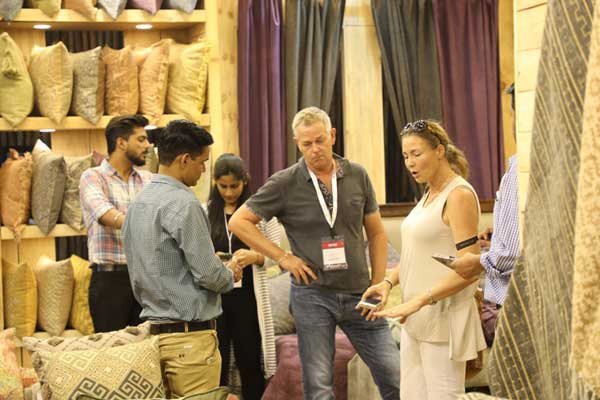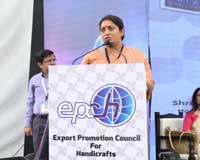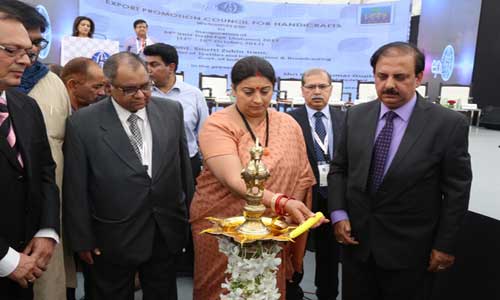FW
NSF International’s certifications help companies show commitment to sustainability, transparency and traceability. As consumers seek greater transparency in the products they purchase, NSF International’s third-party validation of textile content claims helps support and protect brands and strengthen customer trust.
NSF is a global, independent organisation that works to protect the environment and human health. It offers a full range of sustainable third-party certifications including recycled and organic content, traceable down and responsible wool. NSF’s 70-plus years of certification expertise, global presence and quality are designed to help the textile, footwear and apparel industries improve their sustainability, traceability and transparency.
NSF is now an approved certification body for three additional Textile Exchange standards pertaining to organic content, wool and down. The Textile Exchange Recycled Claim Standard verifies the presence and amount of recycled material in a final product through chain of custody verification. The Global Recycled Standard verifies responsible social, environmental and chemical practices in the production of both finished and intermediate products containing recycled content. The standard covers processing, manufacturing, packaging, labeling, trading and distribution of all products made with a minimum of 20 per cent recycled material. The Textile Exchange Organic Content Standard provides third-party verification of organic material content in a product.
Digital is the new black at the 360Fashion and Tech Exhibition taking place in Detroit. It will be hosted by Southfield-based Lear Company and presented by Detroit Garment Group, the "visibility and mobility" themed event is 11 a.m to 7 p.m. at the Lear Innovation Center at 119 State St. The show Friday is the company's first to be held in Detroit.
There will be 30-50 pieces of fashion on display, with an emphasis on "smart garments" and "e-textiles, says Anina Net, CEO of 360Fashion Network. On display will be pieces such as the motion dress, an intelligent pieces of clothing that lights up in accordance with strong movements, like a strut on the red carpet, or becomes dim during one-on-one conversation. There will also be robotic dresses and laser dresses, and wallets that wirelessly charge phones. Those interested can register online.
360Fashion Network produces fashion technology shows throughout the U.S., Europe and China. One of its largest shows is held in partnership with the China National Garment Association and draws an attendance of more than 125,000 people.
Technical innovations that create high-performance fibers and fabrics continue to be at the forefront of product development in the textile industry. From cooling and insulating materials for active wear, to flame resistant, abrasion and impact-resistant fabrics for durable work wear, companies are reaching new heights through collaborations, and with research and development.
DuPont Industrial Biosciences is collaborating with Unifi to create high-performance, renewably sourced garment insulation, offering apparel brands a new sustainable choice for cold-weather products. This partnership combines DuPont Sorona polymer and Unifi Repreve to produce cold-weather apparel insulation that is soft and durable, with strong shape retention.
Repreve is a high-quality fiber containing recycled materials. Unifi’s proprietary process turns plastic bottles into certified fiber, which is then used in thousands of different fabrics and products.
Teijin Aramid has introduced Teijinconex Coolnex Super Wicking Fabric, a light-weight, soft and comfortable flame resistant fabric. The outstanding feature of this new fabric is a quick dry absorption of perspiration without losing its flame resistance. The innovative single layer fabric combines the best in personal protection fabrics with high performance sports textiles, providing high levels of thermal protective performance against heat, flames and flash fire.
Brrr uses a proprietary blend of natural cooling minerals embedded in yarn, superior moisture wicking and a patented knitting and weaving process that maximizes airflow to create a triple chill effect.
The government has started Cotton Express by which garments are sent from Tirupur to various upcountry destinations through a non-stop train. The concept is the first of its kind in Southern Railway. Cotton Express services are tentatively planned on a weekly basis from Tirupur with the day of journey and the destinations to vary from week to week as it would be basically a demand-based operation. The first service was to Howrah.
The Cotton Express has 20 parcel vans and one second class luggage van-cum-guard coach holding a total cargo capacity of 468 tons. In the initial dispatch, the South India Hosiery Manufacturers Association was involved. The role of the industry associations in this hands-on venture is that they will coordinate with member units for clubbing together consignments for dispatch on the same day.
Grouping together the cargoes bound for any particular destination, which is left to the choice of Tirupur industrialists, would provide a win-win situation both to railways and industrialists. The train, being an express service, would take cargoes faster to a said destination vis-a-vis dispatch through lorries. For example, sending cargoes to Howrah will take five days if sent through lorry. But the train will now reach there in two days.
Expectations of a record cotton yield this year in the US may be dashed. The main reason is the hurricane damage to crops. The US cotton yield estimate was downgraded by 19 pounds per acre. The downgrade – which followed a reassessment of crops in the light of Hurricane Harvey, which ravaged south east Texas, and Hurricane Irma, which struck further east – reflected reductions to expectations for both harvested area and yield.
The estimate for US cotton exports for 2017-18 is reduced too due to reduced US production and strong competitor shipments. The impact of the revisions has been to cut the estimate for the country’s cotton stocks at the close of the season by 2,00,000 bales.
On the other hand cotton shipments from Australia are expected to rise by 3,00,000 bales. The forecast for exports from India, the second-ranked shipper after the US, was lifted by 4,00,000 bales thanks to strong domestic production. Import expectations were raised notably for Vietnam, by 3,00,000 bales, on greater global supplies and attractive pricing. China may be poised to loosen import restrictions, after a second successful year of auctions to run down state inventories. However, China’s cotton import policy remains a major wildcard.
Storied American private equity investor TPG has kicked off a process to sell India’s sixth-largest wholesale and retail chain, Vishal Mega Mart, in a deal that could value the company at over Rs 1,500 crore. TPG has appointed Kotak Mahindra Capital as a financial adviser to help in the sale of the asset it acquired seven years ago.
TPG owns the wholesale unit of Vishal Mega Mart, while the front-end stores are run by Chennai-based Shriram Group. Vishal Mega Mart operates over 350 stores in the country and had clocked consolidated sales of Rs 3,000 crore in fiscal 2016.
Vishal Mega Mart’s annual earnings before ebitda was Rs 70 crores. TPG is expecting Vishal Mega Mart to be valued at about Rs 1,500 crore, giving it a multiple of 20 times its ebidta. Avenue Supermarts, currently, trades at a valuation of 85 times its fiscal 2017 ebidta. But Vishal Mega Mart, which has struggled on profitability front, is unlikely to attract similar valuation multiples. As per reports, the Vishal Mega Mart deal could fetch between 20-25 times of ebitda putting it in Rs 1,500-2,000-crore valuation bracket.
The wholesale and retail segment in India has been witnessing consolidation as players look to push up scale and efficiency. Last week, Future Retail announced the buyout of HyperCity, a chain of 19 big-format stores, for Rs 655 crore, to increase its presence in the country. Some time ago, Radhakishan Damani, founder of D-Mart supermarkets, took control of Bombay Stores, a chain of department outlets.
Indian Handicrafts and Gifts Fair (IHGF) opened in New Delhi, October 12, 2017.
It has been organized by the Export Promotion Council of Handicrafts (EPCH). More than 3000 participants are displaying their products. EPCH has enabled small artisans with market linkage opportunities at the fair.

The handicraft sector is one of the largest employment providers in the country, with most micro, small and medium industries being engaged in handicrafts and allied sectors. The handicraft sector generates a large number of jobs with relatively much lower investments compared to large industry sectors.

There is a need for coordinated efforts among stakeholders in the handicraft sector to increase the market share of India in global handicraft exports. It currently stands at a meager five per cent despite the consumer demand showing an upward trend over a period of time.

Mudra extends business financing benefits to more than nine crore of micro level entrepreneurs of the country.
The second day of IHGF added glamour with business with the organisation of a fashion show on the products being displayed by the participants.

The companies whose products were modeled on the ramps included bags from Veva Fashion, Jaipur, leather bags from MB Exports, Rajasthan, jewelry from FDDI Footwear Institute, Noida, and dresses from the north eastern region.

Buyers from different countries were also seen busy doing business with exhibitors on the second day of the fair.

IHGF, the world’s largest handicrafts and gifts fair, is being held in Greater Noida, October 12 to 16, 2017.
A large number of overseas buyers are present at the fair. About 2980 exhibitors of home, lifestyle, fashion, textiles and furniture are participating. Over 6000 buyers from 110 countries are visiting the fair. Special attractions of this fair include a designer forum and recycled products.

The handicraft sector in India has witnessed a growth of 13.15 per cent in 2016-17 compared to the previous year.
EPCH supports the education of children of artisans through open schools which includes tuition fees and other study material. Seventy-five per cent of the entire expenditure will be borne by EPCH and 25 per cent by member exporters sponsoring the study of the children.
EPCH has a design register scheme under which member exporters can register their design without any hassle. EPCH design services are expected to augment the exports of handicrafts from the country and ultimately increase employment opportunities for artisans.
EPCH is providing full support through its integrated program of development of handicrafts and handloom of the north east which includes design, market and skill development.
A initiative is being taken for foreign direct investment in the handicrafts sector and joint venture opportunities for buyers and sellers i.e. both exporters and importers. Over 100 stakeholders have shown keen interest in the sector. A very large amount of investment from the US and Europe is already taking place in the handicrafts sector in China, South Korea, and Vietnam, which are competitors of India. This initiative will give opportunities to overseas buyers to bring technical knowhow, investment and their marketing network to form joint ventures for promoting Indian handicrafts in the world market. This is expected to give exports of handicrafts a new dimension.
Amazon has signed an MoU with the Telangana Department of Handlooms and Textiles to help handloom clusters in Warangal, Pochampally. As the number of weavers has increased over the years sales haven’t gone up proportionally. Warangal has been making durries that use cotton and jute for 40 years. Durries have kalamkari patterns on them. Warangal durries or rugs have been famous for many reasons such as they are made using vegetable colours, and are washed in flowing water after the printing process.
Pitta Ramulu was also the first weaver to get a national award, he had won the ‘National Handloom Award’ for 2015. Ramulu’s durries can be now found on Amazon.Ramulu is hoping the number of orders increases. Orders haven’t picked up much. So far, he has got a few orders through Amazon.
As per the Handloom Export Promotion Council, Warangal has been a long-standing centre for durries and 80 per cent of the handwoven durries sold in European and American markets are woven in India. In March 2016, the Telangana State Handicrafts Development Corporation tied up with Amazon India to sell local hand-made ‘Golkonda’ handicraft products. Many weavers are also registered on the India Handmade Bazaar, a portal sponsored by the Government of India, which also sells Indian handlooms and handicrafts.
This is only one amongst the many initiatives that have been picked up to get more handicrafts and handlooms online and available to a larger group of people, including the Tribal Cooperative Marketing Development Federation of India Limited, a PSU under the Ministry of Tribal Affairs.
Currently, there are about 24 weaver associations and societies who have registered on Amazon to sell their wares.











